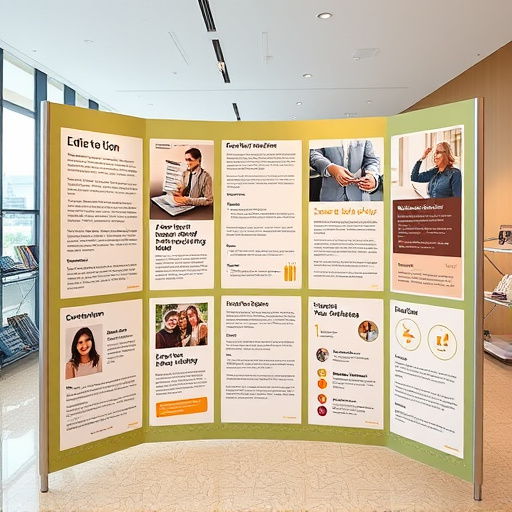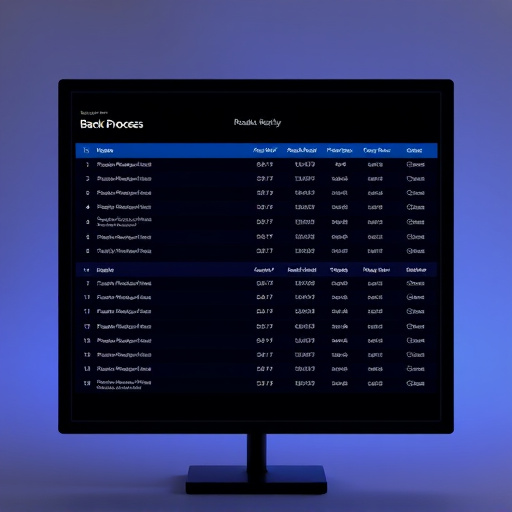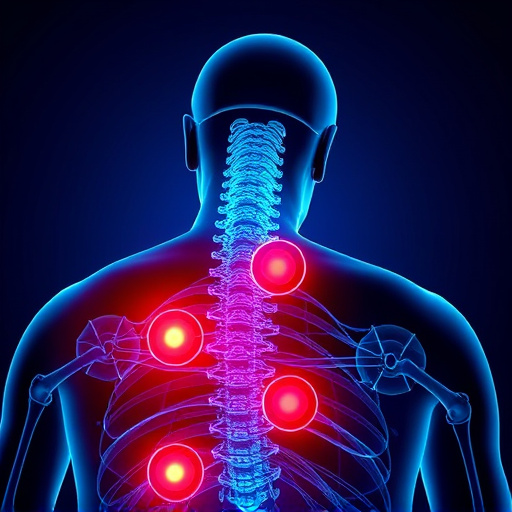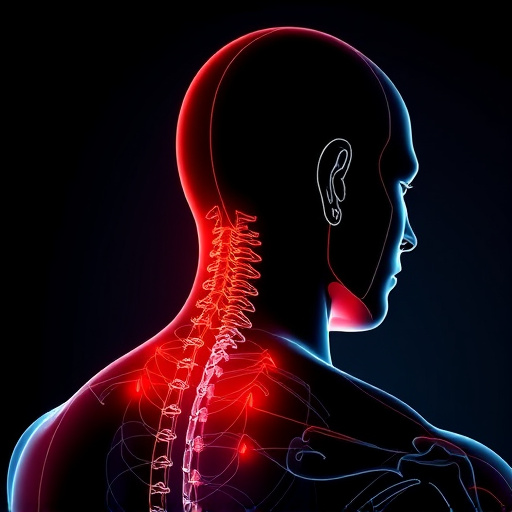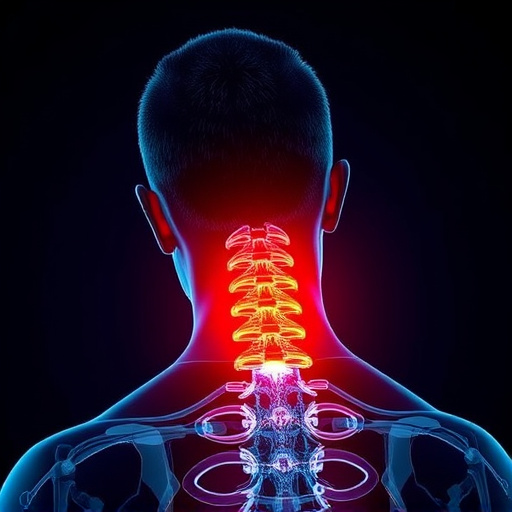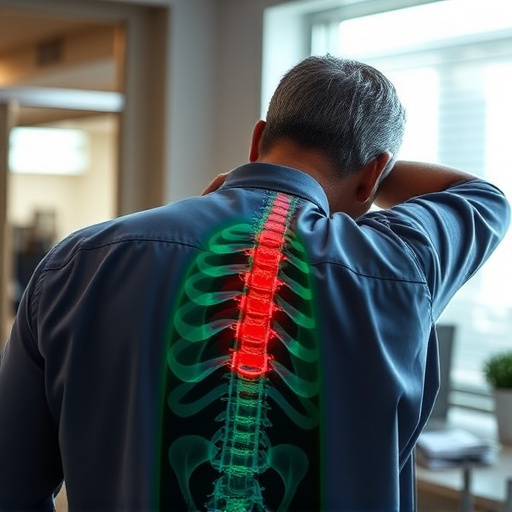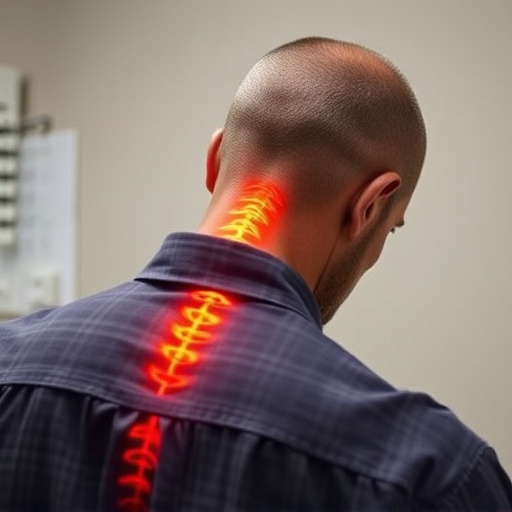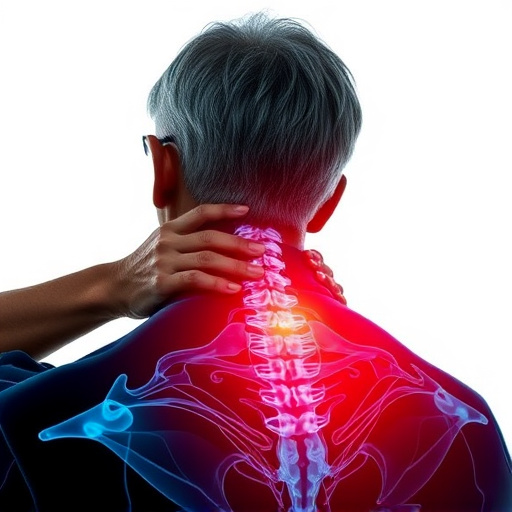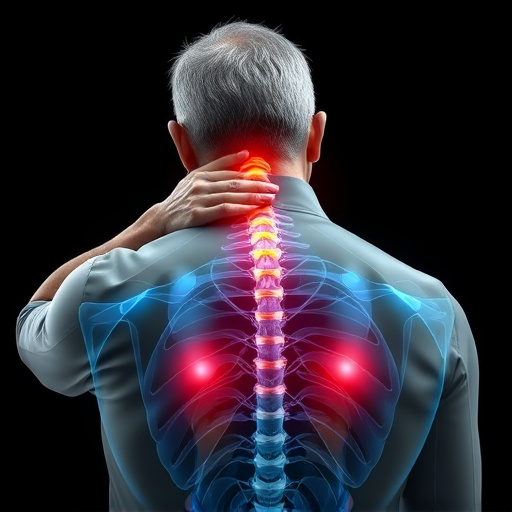After a car crash, individuals can access comprehensive workers compensation injury care designed for workplace-related incidents. Immediate actions include assessing injuries, seeking help, and documenting the incident. Medical professionals diagnose and treat various injuries, with physical therapy aiding recovery. Emotional support through counseling is vital for managing psychological impacts. Navigating claims involves reporting accidents to employers, filing applications, and seeking immediate medical treatment for stronger claim success. Workers compensation injury care ensures access to essential services for a comprehensive recovery.
In the aftermath of an automotive collision, a comprehensive treatment plan is essential for holistic recovery. This article guides you through every step, from understanding your rights under workers’ compensation for automotive collision injuries, to navigating the claims process. We explore immediate care protocols, diagnosis and treatment plans for common injuries, the transformative role of physical therapy, emotional support strategies, and best practices for a successful claims procedure. Equip yourself with knowledge to ensure optimal injury care.
- Understanding Workers' Compensation for Automotive Collision Injuries
- Immediate Care After a Car Crash: Steps to Take
- Diagnosis and Treatment Plans for Common Collision-Related Injuries
- The Role of Physical Therapy in Recovery from Automotive Accidents
- Emotional Support and Mental Health Considerations Post-Collision
- Navigating the Claims Process: Workers' Compensation Claim Procedures
Understanding Workers' Compensation for Automotive Collision Injuries
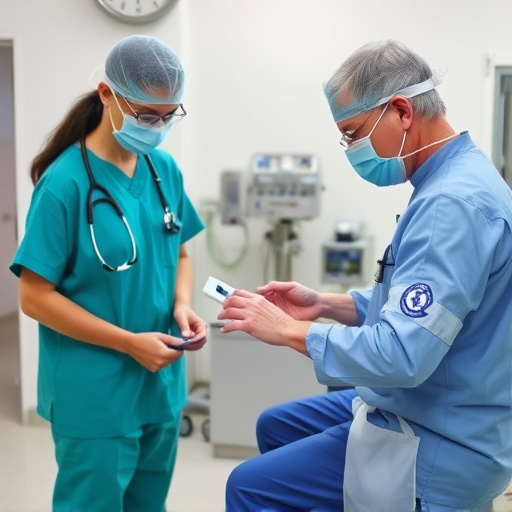
After an automotive collision, individuals often face physical and emotional challenges, which may lead them to seek workers’ compensation for their injuries. Workers’ compensation is a crucial aspect of ensuring proper care for those affected by workplace-related incidents, including car crashes. This system provides essential support in terms of medical treatment, rehabilitation, and financial assistance to employees who sustain injuries on the job.
Understanding this process is vital for victims of automotive collisions. It allows them to navigate their rights and access the necessary injury care. Workers’ compensation covers a wide range of healthcare services, from immediate emergency care to long-term rehabilitation, ensuring that individuals receive comprehensive treatment for their work-related injuries. This includes physical therapy, medical appointments, and in some cases, vocational rehabilitation to help employees return to work safely.
Immediate Care After a Car Crash: Steps to Take
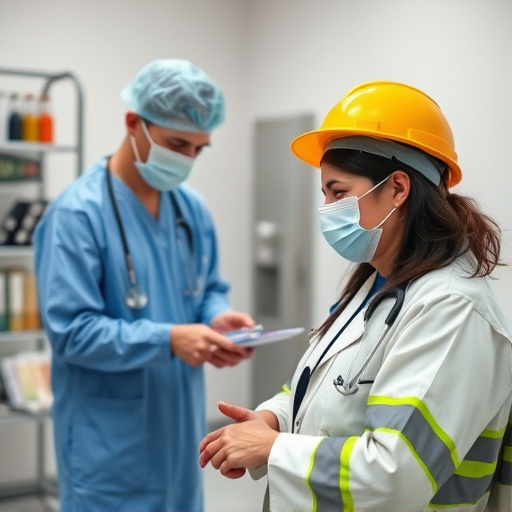
After a car crash, immediate actions are crucial for ensuring proper worker’s compensation injury care. The first step is to assess any injuries—both visible and potential internal ones. If possible, move to a safe location away from active traffic. Call emergency services if necessary, especially for severe impacts or signs of trauma.
Until help arrives, administer basic life support if trained to do so. Protect the scene by alerting other drivers and, if possible, set up reflective gear or warning triangles to prevent further accidents. Document the incident by taking photos of the damage, exchanging information with the other party, and noting down details like witness statements and the exact time of the collision. These steps are vital for facilitating efficient worker’s compensation injury care processes afterward.
Diagnosis and Treatment Plans for Common Collision-Related Injuries
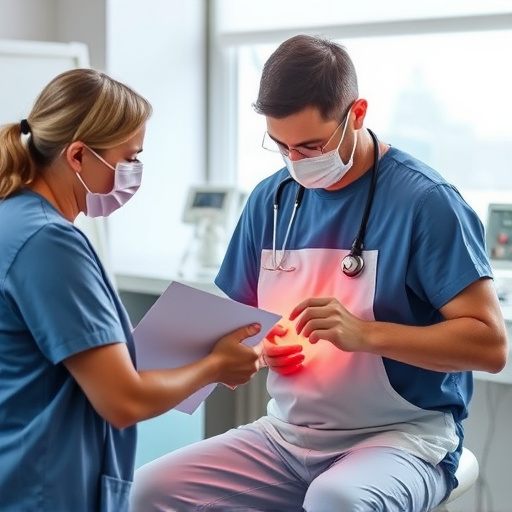
After an automotive collision, immediate and comprehensive diagnosis is crucial for effective treatment plans. The first step involves a thorough assessment by medical professionals to identify and categorize injuries sustained during the accident. Common collision-related injuries include whiplash, fractures, sprains, internal bleeding, and head trauma. Each injury requires specific care and rehabilitation strategies tailored to the patient’s needs.
Diagnosis guides the development of treatment plans that often involve a multidisciplinary approach. For workers compensation injury care, physical therapy, medication management, and counseling are frequently integrated into the recovery process. Early intervention and continuous monitoring ensure optimal outcomes for patients suffering from collision-related injuries, facilitating their return to daily activities and minimizing long-term effects.
The Role of Physical Therapy in Recovery from Automotive Accidents
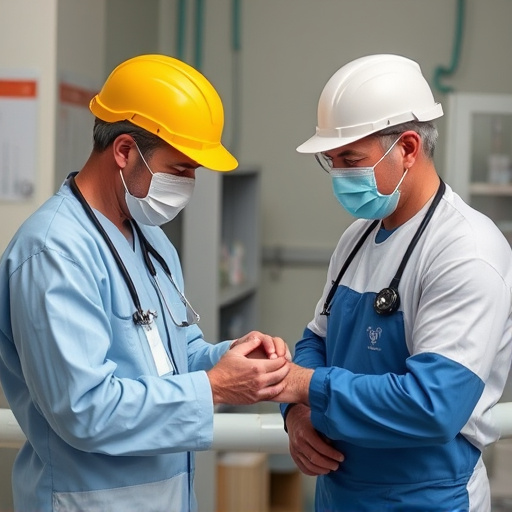
Physical therapy plays a crucial role in the recovery process for individuals post-automotive accidents, often a vital component of comprehensive treatment. Following a collision, victims may experience various physical injuries, from muscle strains and sprains to more severe fractures or whiplash. This is where specialized care comes into play. Physical therapists assess and design individualized programs to manage pain, improve mobility, and restore strength. The goal is to enable patients to regain their pre-accident level of function as much as possible.
For workers compensation injury cases, physical therapy can be a critical step in returning to the workforce. Therapists work collaboratively with patients to understand their specific needs and limitations, providing techniques to manage pain during daily activities and at work. This holistic approach ensures individuals receive the support they need to navigate their recovery journey effectively and safely return to their regular routines.
Emotional Support and Mental Health Considerations Post-Collision

After a car crash, individuals often experience not only physical injuries but also significant emotional and psychological impacts. The sudden trauma can lead to various mental health concerns that require equal attention as the visible injuries. Many survivors may face anxiety, depression, or post-traumatic stress disorder (PTSD), especially if the collision was severe or resulted in life-changing injuries. Emotional support is an integral part of comprehensive treatment, ensuring victims feel understood and cared for during their recovery journey.
Seeking professional help is crucial for managing these emotional challenges. Therapy, counseling, and support groups can play a significant role in workers compensation injury care, aiding individuals in processing their experiences and developing coping strategies. These services are essential in helping collision survivors navigate the aftermath of the incident, allowing them to heal mentally as well as physically.
Navigating the Claims Process: Workers' Compensation Claim Procedures
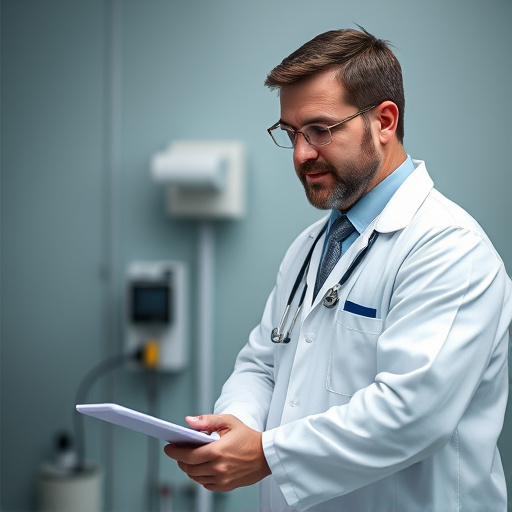
Navigating the claims process after an automotive collision can be challenging, especially when dealing with a work-related accident. Workers’ compensation insurance is designed to provide essential injury care and support for employees who sustain injuries on the job, including those resulting from car crashes. The first step involves reporting the incident to your employer as soon as possible, ensuring accurate documentation of the circumstances leading up to the collision.
Subsequent to this initial report, filing a workers’ compensation claim is crucial. This process often begins with completing an application form provided by your state’s workers’ compensation agency. Medical treatment for injuries sustained in the collision should be sought promptly, as it’s essential for documenting your condition and can significantly impact the outcome of your claim. Keep all records, including medical reports and prescriptions, to support your case when pursuing necessary injury care under workers’ compensation coverage.




